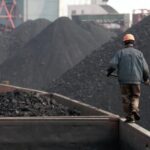Energy News Beat
When sitting down years ago to decide on how to do a podcast, it never crossed my mind that conversations like today’s would be possible. I had the pleasure of sitting down with Robert Brooks, Founder and chairman, of RBAC, to cover the global LNG and natural gas markets.
Wow we had a great talk, and you can tell from the timeline that we covered the entire global market. RBAC is the leading Energy Market Simulation System to help in M&A, risk analysis, planning, and commodity trading. In order to understand the modeling tools, you have to understand the complex supply, demand, and geopolitical issues. Their tools are critical, but how do you put a price on energy security?
Thank you Dr. Brooks for stopping by the podcast again! This was a great discussion, and I can’t wait to get another update. – Stu
00:00 – Intro
01:08 – Dr. Robert Brooks discusses his optimism for African self-empowerment, acknowledging challenges like corrupt leadership and poverty but emphasizing the potential to utilize abundant resources for development.
05:47 – Tell us a little bit about what you do and the importance of your global market.
10:29 – Dr. Brooks shares insights from his presentation at a DMG conference in China, focusing on energy security. Highlights include China’s substantial natural gas production, extensive use of LNG import terminals, challenges in massive cities, and transportation systems.
16:04 – Description of Beijing’s cleanliness, green spaces, and cultural emphasis on aesthetics. Positive experiences with considerate people are mentioned, along with the evolving nature of China’s natural gas markets despite top-down control.
21:36 – How much are they trying to put in for natural gas versus coal in their mix? Do you know?
23:14 – China’s approach to energy security, highlighting their reliance on coal for domestic production, slow development of local gas resources, and a diversified strategy involving Central Asian pipelines, Russian gas deals, and LNG imports to mitigate challenges and ensure energy stability.
26:10 – Doesn’t Egypt have spare capacity to export out?
30:20 – Mention of France’s long-term natural gas contracts with Norway and considerations of LNG storage and transportation logistics, including the strategic use of tankers as floating storage.
32:39 – The logistics and cost considerations of LNG storage and transportation, noting the strategic use of tankers as floating storage to minimize costs and maximize profits based on market conditions.
35:48 – Don’t long term contracts go to more stable geopolitical scenarios?
37:36 – Is determining the viability of contracts, especially through pricing models, a core function of RBAC’s software for companies?
39:59 – Do you factor in if the country buys in a ton of LNG tankers, does that matter?
43:09 – How does a model take into consideration the the shifting of effort may go to natural gas as the princess at the ball if you would.
46:52 – Dr. Brooks discusses liquefied petroleum gas (LPG) as an energy solution, emphasizing its benefits in developing countries due to lower costs and job creation in the supply chain. The conversation touches on the humanitarian aspect of providing reliable energy sources, particularly in rural areas.
52:35 – Tell us any thoughts that you have. It can be wide open. Tell me what you’re thinking on the last thoughts here.
56:06 – Where people can find you?
5:21 – Outro
Follow Dr. Brooks on LinkedIn HERE: https://www.linkedin.com/in/robert-brooks-ph-d-8081231/
More information on RBAC HERE: https://rbac.com/
Other RABC Interviews:
ENB #145 Africa’s response to the West’s self-serving fiscal and energy policies with the Secretary General of African Petroleum Producers Organization (APPO)
ENB #142 Why is the Climate Crisis racist where Africa is concerned? The West policies towards Africa are like environmental racism. – Alex Epstien – Video UPDATE
ENB Top News
ENB
Energy Dashboard
ENB Podcast
ENB Substack
The post #157 Dr. Robert Brooks – Insights from China on LNG, natural gas and the global energy security crisis. appeared first on Energy News Beat.








